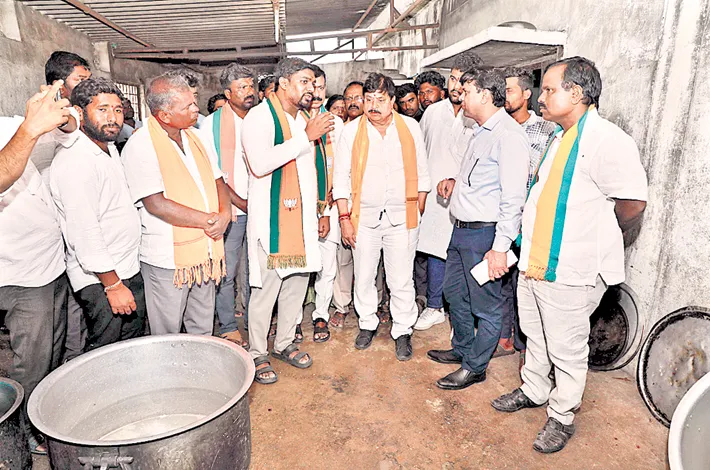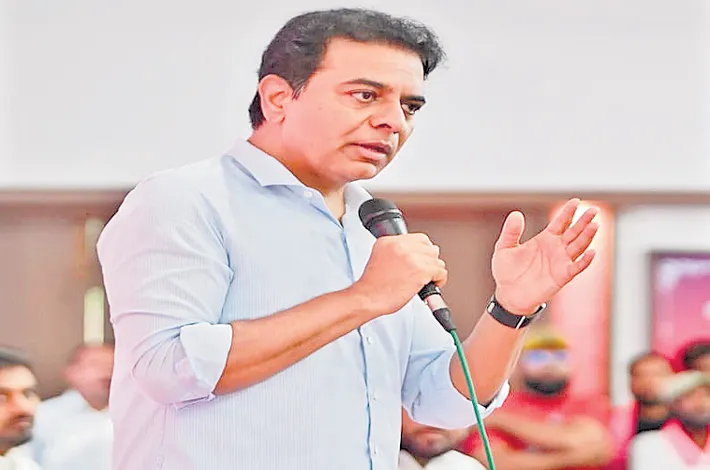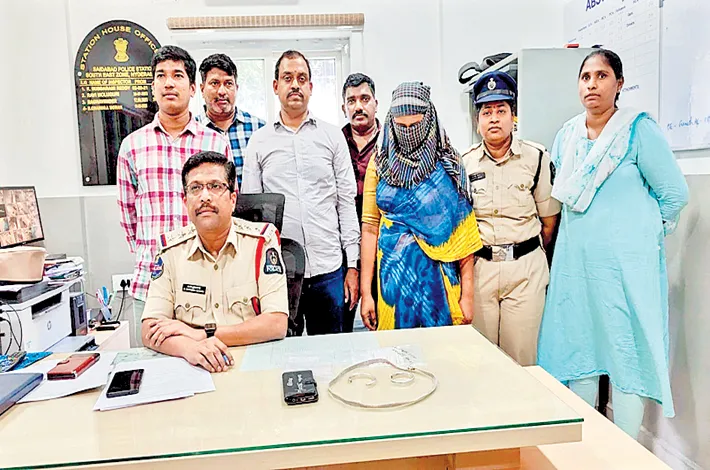Poison on the plate
28-07-2025 12:00:00 AM

60 students of a state-run Girls Residential School in Nagarkurnool hopsitalised after having dinner
metro india news I hyderabad
The Telangana's government-run residential educational institutions and social welfare hostels have been hit by a wave of food poisoning incidents in recent months. The issue affects students across the state, from rural Kasturba Gandhi Balika Vidyalayas (KGBVs) to urban social welfare schools. According to data from the Hakku Initiative, over 1,247 students in 34 institutions across 20 districts suffered from food poisoning between January and November 2022. The situation has worsened since then, with 386 students hospitalized in 2024 and multiple deaths recorded.
The numbers are alarming. In 2022, Telangana recorded 36 food poisoning incidents affecting over 1,000 students. In 2024, 114 students from Telangana Social Welfare Residential Educational Institutions Society (TSWREIS) schools, 168 from KGBVs, 49 from Telangana Tribal Welfare Residential Educational Institutions Society, and 55 from mid-day meal programs were hospitalized due to food poisoning. Notable cases include the death of a sixth-grade student in Bhuvanagiri in April 2024 and multiple incidents of students falling ill in Wankidi and Narayanpet.
Causes
The recurring food poisoning incidents stem from a combination of infrastructural deficiencies, poor hygiene practices, inadequate oversight, and systemic negligence. Key issues include: Poor hygiene and sanitation in kitchens and hostels, inadequate infrastructure, including dilapidated buildings and lack of proper storage facilities, lack of oversight and accountability, with infrequent visits from wardens and principals, insufficient training and manpower, leading to compromised food safety and negligence and political blame games, diverting attention from systemic issues.
The consequences of these incidents are devastating. Students suffer health setbacks and psychological trauma, while parents are left disillusioned and burdened with medical expenses. The lack of transparency and fear of retaliation prevent students and parents from raising complaints, perpetuating a cycle of silence and suffering.
To address this crisis, Telangana must adopt a multi-pronged approach that prioritizes student safety and systemic reform. There is a need to strengthen food safety committees and conducting regular inspections, centralize food procurement and quality control, upgrade infrastructure, including clean water supply and modern kitchens, conduct regular audits and oversight, with swift accountability measures and encourage community engagement and awareness on food safety
The food poisoning crisis in Telangana's government hostels and social welfare institutions demands urgent action. The state must address the root causes of the issue and implement systemic reforms to ensure the safety of its students. By doing so, Telangana can restore confidence in its residential schools and protect the health and well-being of its most vulnerable students.








